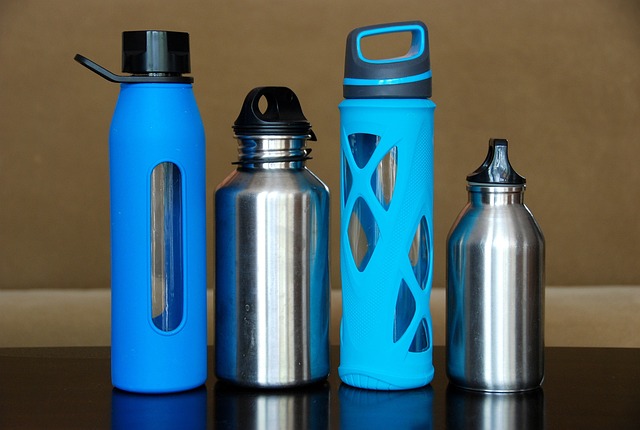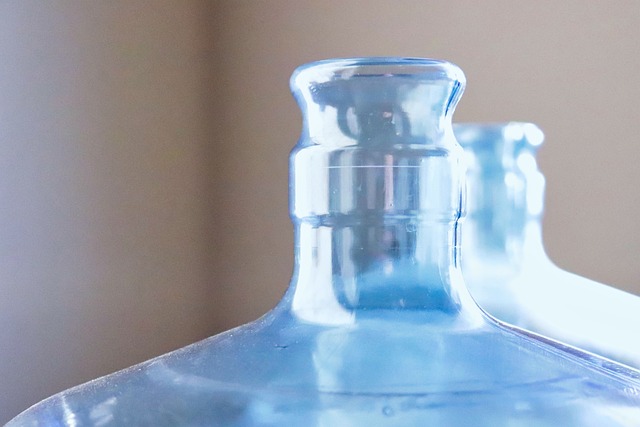1. Introduction: A Brief Overview of the Keto Diet
The keto diet is a popular diet plan that has gained a lot of attention in recent years. It involves reducing carbohydrates and increasing fat intake to put the body into a state of ketosis.
This enables the body to use stored fat as a source of energy rather than relying on carbohydrates.
The main benefit of the keto diet is that it can help you lose weight quickly and effectively, while also improving overall health.

However, it is important to understand the importance of hydration when following a keto diet in order to maximize its benefits.
This article will explore the role of hydration in a keto diet and how to ensure you stay properly hydrated.
2. The Role of Hydration in a Keto Diet
Hydration is incredibly important in any diet, but especially so in a ketogenic diet. The keto diet is a high-fat, low-carbohydrate diet that reduces the body’s intake of carbohydrates, leading to a state of ketosis.
When the body enters ketosis, it begins breaking down fat molecules to use as energy. This metabolic process produces ketones, which are water-soluble molecules that require regular hydration to be broken down and used for energy.
Without adequate hydration, the body is unable to effectively process and use the ketones, leading to a decrease in energy and an increase in fatigue. Additionally, the body needs sufficient water to help flush out toxins and excess waste that is produced during the ketogenic process.
Therefore, hydration is essential for the body to effectively enter and maintain the ketogenic state.
3. Benefits of Adequate Hydration on a Keto Diet
Adequate hydration is essential for sustaining a healthy Keto diet. Proper hydration helps to keep the body functioning optimally, allowing it to process and utilize the nutrients from food more efficiently.
Adequate hydration also helps to promote better digestion, reduce food cravings, and improve mental clarity. Additionally, proper hydration can help to prevent constipation, a common side effect of the Keto diet.
Adequate hydration also helps to reduce inflammation, which can be beneficial for those who suffer from chronic conditions such as arthritis.
Finally, proper hydration helps the body to flush out toxins more effectively, aiding in overall health and wellness.
4. How Much Water to Drink on a Keto Diet
When following a keto diet, it is essential to stay adequately hydrated. Adequate hydration helps to facilitate the metabolic processes of the body, allowing the body to burn fat more efficiently.
It is recommended to drink at least eight 8-ounce glasses of water per day, or roughly 2 liters.
For those who are more active, the recommended amount may increase. Another way to measure the amount of water needed for adequate hydration is to divide your body weight in half and drink that number of ounces of water per day.
For example, if you weigh 140 pounds, you should aim to drink 70 ounces of water per day.
5. Signs of Dehydration and How to Address It
Dehydration is a serious health issue that can lead to physical and mental fatigue, headaches, and confusion, among other symptoms. People who are on a keto diet, in particular, need to be aware of the signs of dehydration, as this type of diet can cause increased water loss.
Generally, the signs of dehydration include thirst, dry skin, dizziness, dark yellow urine, and fatigue. Additionally, individuals may experience more frequent headaches and constipation as they become dehydrated.
If you are experiencing any of these symptoms, it is important to take action to address the dehydration.

The most important step is to increase your water intake. It is recommended to drink at least eight to ten glasses of water per day, although this amount can vary depending on your lifestyle and activity level.
Additionally, electrolyte supplements can help to restore the balance of minerals in your body, which can help to reduce dehydration symptoms.
Finally, it is important to avoid activities that can increase the risk of dehydration, such as spending time outdoors in hot weather or engaging in physical exercise for long periods of time.
6. Electrolytes and Their Importance in a Keto Diet
Electrolytes are essential minerals that are important for regulating fluid balance, muscle movement, and other functions in the body.
On a keto diet, electrolytes can become unbalanced due to the body’s process of burning fat for energy and the decrease in carbohydrate intake.
This can lead to symptoms such as headaches, fatigue, and muscle cramps, so it’s important to ensure that electrolyte levels are maintained. To do this, it’s important to increase your intake of electrolytes through food, supplements, and drinks.
Additionally, it is important to increase your water intake to help balance electrolyte levels and keep your body hydrated.
7. The Role of Mineral Supplements in a Keto Diet
The keto diet is a low-carb, high-fat diet that is used to promote weight loss and improve health.
While this type of diet is beneficial for many people, it can also lead to dehydration, as the body is forced to rely on fat for fuel instead of glucose. This means that it is important for those following a keto diet to make sure they are adequately hydrated.
One way to do this is by taking mineral supplements, as they can help to replenish lost electrolytes and minerals. Mineral supplements can also help to maintain proper hydration levels, as they contain important electrolytes such as sodium, potassium, magnesium, and calcium.
Additionally, they can help to reduce cravings and improve digestion, which can be beneficial for those on a keto diet.
Mineral supplements can be taken in the form of tablets, capsules, or powders, and it is important to consult a physician or nutritionist to determine the best option for a particular individual.
8. Common Misconceptions about Hydration on a Keto Diet
One of the most common misconceptions around hydration and a keto diet is that because carbohydrates are eliminated, you don’t need to drink as much water as you would on a standard diet.
This is not true. Although it may be true that you don’t need as much water as someone who is consuming a diet high in carbohydrates, it is still important to consume adequate amounts of water when you’re on a keto diet.
A lack of water can lead to dehydration, which can have serious consequences for your health.
It’s important to understand the role of hydration on a keto diet in order to ensure that you remain properly hydrated.
9. Strategies for Staying Hydrated on a Keto Diet
Staying hydrated on a keto diet is essential for overall health and wellbeing. There are several strategies that can be employed to ensure adequate hydration.
One of the most important strategies is to make sure to drink plenty of water throughout the day.
Additionally, it is important to avoid diuretics like coffee, tea, and alcohol, as these can contribute to dehydration.
Eating foods with a high water content, such as cucumbers and celery, can also help to increase hydration levels.
Finally, taking mineral supplements such as sodium, magnesium, and potassium can help to replenish electrolyte levels and keep the body hydrated.
Incorporating these strategies into a keto diet can help to ensure adequate hydration and optimal health.
10. Conclusion: The Importance of Hydration on a Keto Diet
In conclusion, it is essential to understand the importance of hydration on a keto diet. Adequate hydration can help to ensure the body maintains a healthy balance of electrolytes and minerals, which are important for the functioning of the body.
Furthermore, adequate hydration can help to reduce feelings of fatigue and dehydration, and can improve overall health and well being.
While there are some common misconceptions about hydration on a keto diet, it is important to know the facts and to take the necessary steps to ensure proper hydration.
By drinking enough water, eating potassium-rich foods, and supplementing with electrolytes as needed, one can stay properly hydrated on a keto diet and enjoy its many health benefits.
